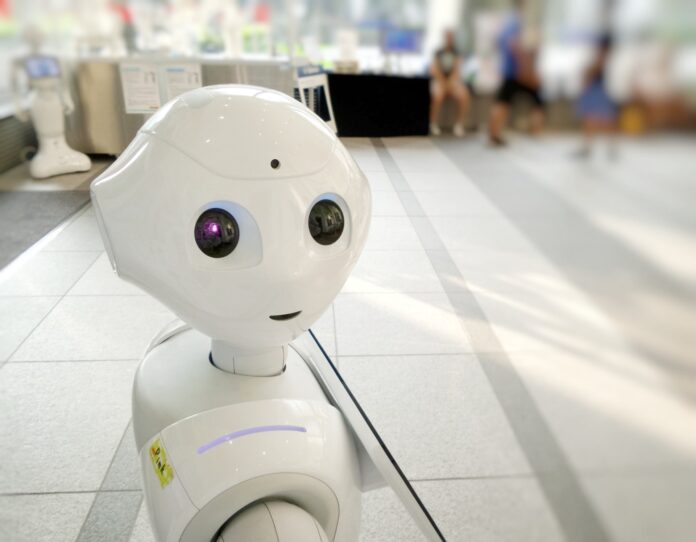Technologies that promise to change the way that we work have been rising to prominence since the Industrial Revolution. With every new advance, there is a period of uncertainty and concern as the implications of new technology ripple throughout the business arena and, especially, the labor pool.
Employees may not be smashing their workstations, but their anxieties are present today alongside increasing digitization. As advanced software takes its place in the business world, including tools capable of machine learning and basic forms of artificial intelligence, many individuals worry that their jobs will soon be replaced.
According to Forbes, 50% of companies surveyed expect to reduce payroll based on automation. However, nearly as many respondents, 40%, believe that new tools could allow them to hire even more employees.
Despite the well-founded anxieties of employees, there may be opportunities for automation to strengthen, not shrink, the workforce.
Self-Sufficient AI Is a Long Way Off
Despite the large amount of attention devoted to AI in the business world, the technology is still a long way away from being the super-powered systems in science fiction. AI tools still require human direction, and AI or machine learning is often highly specialized for specific tasks. As a result, these systems still need employees to oversee their operation, double-check the outputs, set them up, and guide their work.
This requirement alone is likely to lead to significant job creation. There are likely to be many complex systems with lots of moving parts at work. As is the case for humans, no AI is perfect or completely free from errors—in fact, machine learning applications can sometimes draw the wrong conclusions without oversight.
As businesses look to integrate AI into their work, they will also create teams that can build, support, and work alongside these new tools.
Some Employees May Make Lateral Moves
In some cases, AI may alter jobs rather than creating or destroying them. Rather than eliminating positions entirely as AI begins to supplant certain positions, businesses may choose to invest more heavily in upskilling or reskilling their existing workforce. By re-training teams to work within new and advanced processes, they could achieve greater levels of productivity and value for the business.
Across industries, the impact of AI is likely to vary significantly. Some businesses may not see the value in AI immediately. Proactive teams that look for ways to improve workflows and integrate modern technology into the company can cement their role within an organization while creating new opportunities for technology upgrades.
Collaborative Tools Can Integrate Remote Workers Seamlessly
The shift to remote work that began in 2020 is set to continue, and many workers are embracing the change. According to a study conducted by Pew Research, 54% of respondents said that they hoped to be able to continue to work remotely as a part of their new normal. With more workers out of the office, AI and automation tools can fill in the gap and help remote employees achieve more.
Businesses and employees can benefit dramatically when in-office tasks, such as accounts payable and purchasing processes, receive intelligent automation for their document-related workflows. Documents that employees scan into PDF software with robust optical character recognition can undergo processing by an AI with natural language recognition, grabbing critical data and making it available within other business systems.
Remote workers can collaborate with their in-office counterparts through real-time document editing in the same software setting or send critical documents out for electronic signatures. AI could then classify and store these documents according to security rules, maintaining best practices without room for human error.
Innovations Could Lead to New Job Categories
Just two or three decades ago, few individuals could have imagined the deep business insights that would be possible with the big data processing capabilities that businesses can tap into today. ERP and CRM platforms have made every business action and interaction into a data point, and robust reporting tools turn that data into actionable information.
As AI adoption grows within offices, crunching that data will become even easier—and there’s no telling how businesses might respond to the answers that they uncover. Just as computers created whole new categories of jobs and countless new positions, AI is likely to do the same in even more unpredictable and stimulating ways.
As businesses learn how to best use these tools and parse information with them, there will be a perpetual need for staff members who can interpret and use the data.
Should Workers Fear or Cheer the AI Revolution?
The realization of the full potential that AI holds for business purposes has only just begun. As these technologies continue to grow and mature, we can anticipate seeing them taking up a place in the office more often and in more places. However, while some rote and repetitive tasks may include automation and the loss of certain jobs, it’s clear that there will soon be many more opportunities for employees and candidates to find work alongside AI.
With an ongoing shift towards working from home and the need to achieve more with less, it’s not a matter of if AI will become entrenched in business but when. Workers should see this change not as cause for alarm but rather as an exciting opportunity. By tracking these developments and learning how to augment AI capabilities with human talent, the workplace of tomorrow can become a complex and productive human-machine hybrid.
Find a Home-Based Business to Start-Up >>> Hundreds of Business Listings.

















































